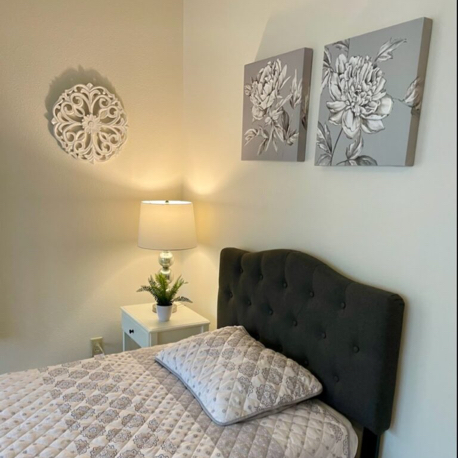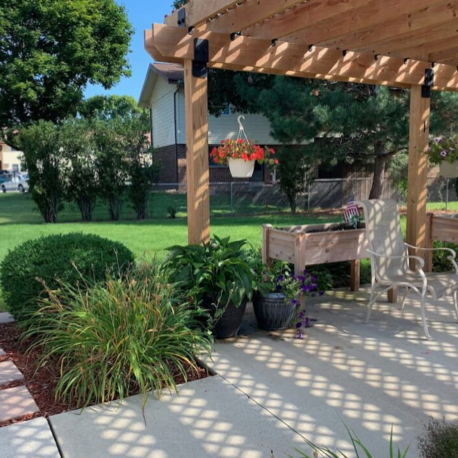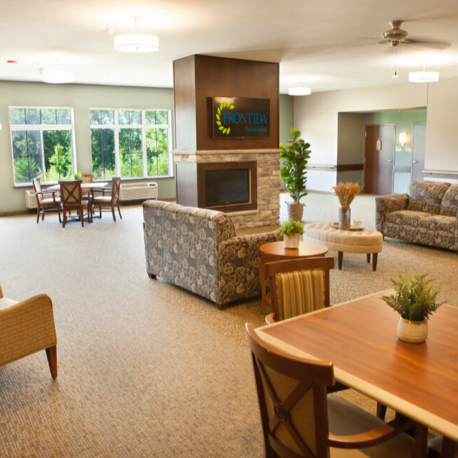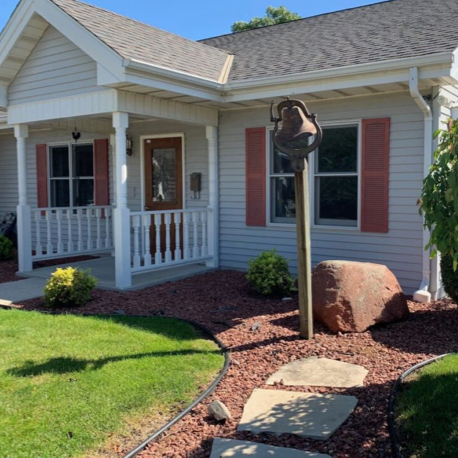Caring for an aging loved one can be one of life’s most fulfilling responsibilities. It can also be one of the most demanding. From managing appointments and medications to assisting with daily routines, caregiving can feel like a full-time job—and often, it is.
For those providing this care, the ability to take a break is more than a luxury—it’s essential.
Respite care offers short-term, professional, and personal support for older adults. It can help seniors recover after surgery or give family caregivers time to recharge and evaluate if the community is a good fit for long-term living.
Whether you need a couple of weeks or a few months of support, our respite care is here to support you for your care needs.
Why Respite Care Matters
Everyone needs a break sometimes. Caregivers are no exception.
Respite care allows caregivers to temporarily step away from their responsibilities without compromising the well-being of the person they’re supporting. Caregivers can use the time for personal rest, travel, work obligations, or other family matters.
For the older adult care recipient, respite care is a change of scenery, a chance to socialize, and an opportunity to experience life in a professional care setting.
Respite guests can receive personalized support with access to engaging activities, meals, and community amenities.
When Should You Consider Respite Care?
There’s no universal schedule for taking a break. Each caregiver’s needs and circumstances are unique. However, there are some common situations when respite care can be especially helpful:
- During vacations or travel
- Following a medical procedure or hospital stay
- During busy periods at work or with other family responsibilities
- When dealing with personal health issues or mental fatigue
- To allow a senior to “test out” a community environment
Even a few days of support can provide the relief necessary to prevent burnout and restore balance in a caregiver’s life.
Respite care can also help seniors recover following a planned surgery or unexpected illness, providing tailored assistance for a more comfortable, faster return to their normal routine.
What Is Caregiver Burnout?
Without support, even the most dedicated caregiver can experience burnout. The condition goes beyond stress—it’s a deep exhaustion that affects physical health, mental clarity, and emotional stability. Common signs include:
- Constant fatigue, even after rest
- Irritability or feeling overwhelmed
- Withdrawal from friends or activities
- Difficulty sleeping or changes in appetite
- Feelings of hopelessness or guilt
Burnout can compromise a caregiver’s ability to provide safe and loving care. But perhaps more importantly, it can also impact their own quality of life.
Respite care serves as a preventive measure, helping caregivers maintain their wellness so they can continue showing up for their loved ones with energy and compassion.

What Happens During a Respite Stay?
Respite care is about more than just covering the basics. It offers a full range of support tailored to the needs of each individual. Depending on the location and type of care, respite services can include:
- A furnished private or semi-private suite
- 24-hour care & supervision
- Assistance with activities of daily living (ADLs), such as bathing, dressing, & medication management
- Delicious meals & snacks, prepared daily
- Access to group activities, outings, & wellness programs
- Housekeeping & laundry services
While some seniors may need more medical support, others may simply benefit from the opportunity to enjoy a safe, structured, and socially active environment for a short time.
Preparing for a Respite Stay
If you’re considering respite care for a loved one, here are a few steps to help promote a smooth and positive experience.
- Assess needs & make a list of physical, emotional, & medical needs so you can share this with care providers
- Respite care can be tailored to various care levels, but not all communities provide every option—creating a list helps you know what to look for
- Schedule a tour so you can ask questions, meet staff, & get a feel for the environment
- Bring your loved one along when possible so they have the opportunity to assess aspects uniquely valuable to their experience
- Ask about services & costs, so you’re clear about what’s included & whether there are any additional fees
- Respite care is often offered at a daily or weekly rate
- Check availability, especially during holidays or peak seasons, as respite suites may be limited
- Booking in advance is always a good idea when possible
- Prepare your loved one by talking through the plan together
- Emphasize the temporary nature of the stay & all the positive aspects, like new activities & friendly staff
A Win-Win for Everyone
Communities design respite care to support caregivers and offer senior guests numerous benefits. Short-term residents can enjoy:
- Social engagement & stimulation
- Safe, professional oversight
- New friendships & experiences
- A break from their routine
It’s common for families to find that a respite stay strengthens their relationships, as time apart allows both parties to rest and reconnect.
Taking the First Step
Choosing to explore respite care is a sign of strength, not weakness. It’s an acknowledgment that caregiving is a long-term commitment—and that sustainability requires support. If you’re feeling overwhelmed or just need a break, it’s okay to reach out for help.
The peace of mind that comes from knowing your loved one is safe, cared for, and engaged—even for a short period—can be transformative.
Discover Respite Care in Wisconsin Dells
If you’re exploring respite care options in Wisconsin Dells, Riverwood Senior Living offers personalized short-term stays that balance professional care with comfort and community. Our dedicated team is here to support you and your loved one with dignity, warmth, and respect.
Contact us today to schedule a tour and see how a temporary stay can provide lasting relief and renewed energy for you and the person you care for.







